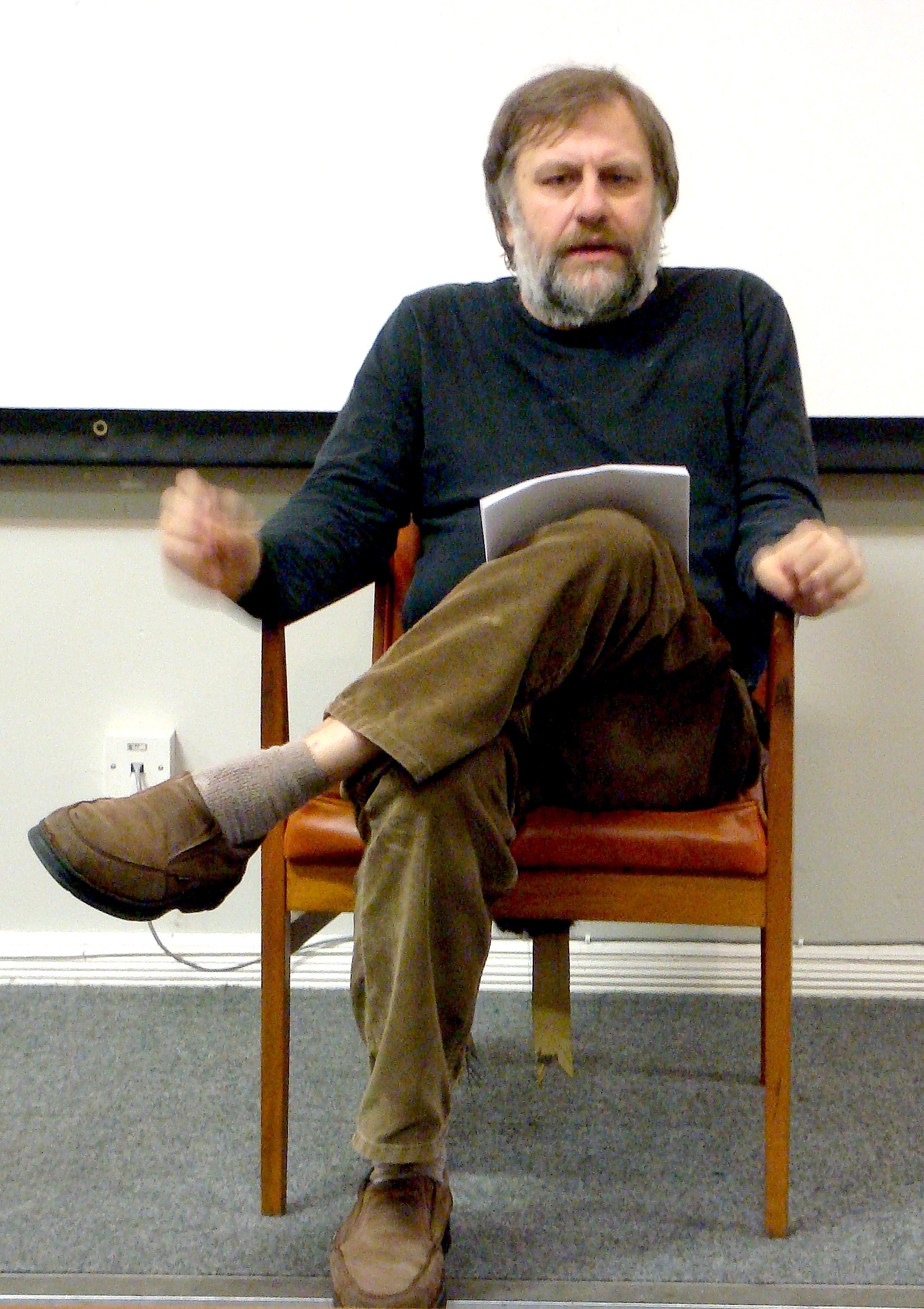Frases célebres de Slavoj Žižek
Fuente: En defensa de la intolerancia.
Fuente: Zizek: "Chávez y Maduro son populistas, Pablo Iglesias no" http://www.elmundo.es/papel/historias/2015/10/07/5613b67dca4741b77d8b45a9.html. El Mundo, 7/10/2015
Slavoj Žižek: Frases en inglés
the the death of the so-called real object in its symbol, but the obliteration of the signifying network itself.
147
The Sublime Object of Ideology (1989)
Interview http://www.youtube.com/watch?v=w7d-m3ko_eg&feature=feedrec_grec_index
Welcome to the Desert of the Real!: Five Essays on September 11 and Related Dates (London: Verso, 2002, ISBN 1-859-84421-9), p. 16
Fuente: Less Than Nothing (2012), Chapter One (The Drink Before), Vacillating The Semblances
Fuente: First as Tragedy, Then as Farce (2009), Chapter One, Human, All Too Human
Last remark in an interview for the CN8 show Nitebeat (2003) http://www.youtube.com/watch?v=KjEtmZZvGZA
Fuente: The Sublime Object of Ideology (1989), pp.29, "Cynicism as a Form of Ideology"
Introduction
Less Than Nothing (2012)
Žižek! (2005); as Žižek notes on p. 1 of Mapping Ideology (1994), the observation that it is easier to imagine the end of the earth than the end of capitalism was originally made by Fredric Jameson.
In other words, wickedness appears to be something which is irreducibly given: the person in question can never change it, outgrow it via his ultimate moral development.
186-187
The Sublime Object of Ideology (1989)
Introduction
Less Than Nothing (2012)
32; quote from Lacan's Le séminaire, livre VII : L'éthique de la psychanalyse, 295
The Sublime Object of Ideology (1989)
Conversations with Žižek by Slavoj Žižek and Glyn Daly (Cambridge: Polity Press, 2004), p. 50
“Even the dead will not be safe from the enemy if he wins.”
161
The Sublime Object of Ideology (1989)
Fuente: The Plague of Fantasies (1997), Chapter One: The Seven Veils of Fantasy, p.9
